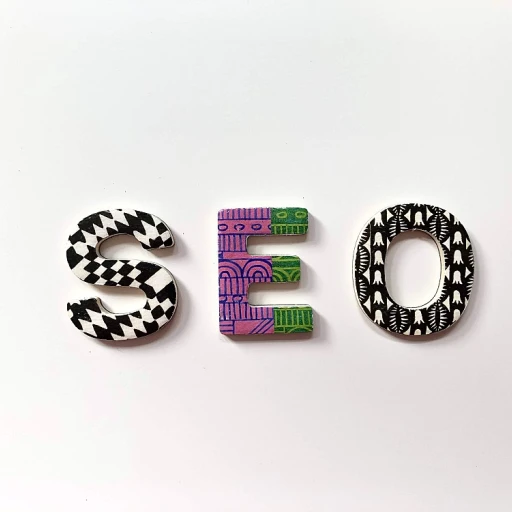The Evolution of AI in Crafting SEO User Journeys
The Dawn of AI-Driven SEO Techniques
Search engine optimization (SEO) has undergone a metamorphosis in recent years, with artificial intelligence (AI) emerging as a cornerstone of strategy and execution. AI's influence reaches far beyond mere keyword density and metadata optimization. Today's SEO professionals embrace AI to understand and predict user behavior, creating user journeys that are more intuitive, relevant, and engaging. As we delve into the impact of AI on SEO, we see a shift towards more sophisticated, data-driven strategies that enable websites to not only rank higher but to truly resonate with their intended audience.
Machine Learning and the Personalization of User Experiences
One of the groundbreaking contributions of AI to SEO is the advent of machine learning algorithms capable of analyzing vast datasets. These algorithms can identify patterns and preferences among users with an unparalleled degree of precision. This granular understanding of user intent has transformed the SEO landscape, allowing for personalized content strategies that speak directly to the searcher's needs. Websites can now anticipate user questions and provide answers before they are even asked, smoothing the user pathway and cementing brand authority in the digital space.
Unleashing AI's Predictive Powers on Search Engine Rankings
The integration of AI into SEO strategies stretches the capabilities of traditional analytics. With AI's predictive prowess, search engines can now look beyond static ranking factors and evolve with user behavior. This gives rise to personalized SEO paths where user experience (UX) is king, and content relevance is queen. By analyzing click-through rates, dwell times, and other behavioral metrics, AI tools sculpt user journeys that are not only satisfying but are also designed to improve rankings organically over time.
Aligning AI with SEO for Efficacious Content Architecture
As search engine algorithms become more nuanced, mimicking human understanding, the role of AI becomes integral in crafting content that is both SEO-friendly and genuinely valuable to users. AI's capability to analyze and understand language patterns—think semantic search—has led to content that is meticulously tailored to user intent. Thriving in today's competitive landscape means utilizing AI to create content architectures that leverage semantic richness to boost visibility and user engagement.
Big Data, Bigger SEO Opportunities
In the world of AI-enhanced SEO, big data is the treasure trove that feeds the machine. With every click, search, and interaction, users generate data points that AI harnesses to refine SEO strategies. Capturing, processing, and leveraging this vast volume of information, AI enables marketers to build virtually omniscient perspectives of what effective SEO looks like. The ability to turn these insights into action is what sets AI-empowered SEO apart in the quest for digital supremacy.
As we continue through various facets of AI's role in redefining SEO practices, we will uncover how predictive analytics, semantic search, and behavioral data integrate to create unparalleled SEO optimization techniques, ultimately paving the way to an AI-enabled SEO future that promises even greater advances and possibilities.
Predictive Analytics and Personalized SEO Paths
Predictive Analytics: A Cornerstone for Tailored SEO Experiences
Predictive analytics stands at the forefront of innovative SEO strategies, utilizing artificial intelligence to create a tailored experience for each user. This cutting-edge technology sifts through massive datasets to not only understand user behavior but to anticipate it. By harnessing the power of predictive analytics, SEO professionals can accurately forecast future trends and user interactions, leading to more precise targeting and elevated search engine rankings.
The influence of predictive analytics in SEO is multifaceted. Keywords, the linchpin of SEO, are selected with greater precision, as AI algorithms analyze past search queries to predict which terms will be relevant in upcoming searches. This anticipatory approach means that content is optimized not just for the current landscape but for the future as well.
Content relevance is also enhanced through predictive analytics. AI systems track user engagement and journey patterns to predict what content will resonate with users in the future. By doing so, they ensure a high user retention rate and increase the likelihood that the site's content will be shared, thus improving the site's overall SEO performance.
Personalization: SEO's New Best Friend
Personalization is no longer just a buzzword in marketing; it's a critical component in the evolution of SEO user journeys. AI-driven SEO tools are now capable of delivering personalized content recommendations at scale, revolutionizing the way users interact with search engines. This tailored approach not only boosts user satisfaction but also increases the chances of conversion by presenting the most relevant information at the exact moment the user needs it.
With the help of user data and behavior analysis, AI crafts unique SEO pathways. It considers individual user preferences, search history, and even real-time online activity, to adjust search results and content visibility accordingly. This level of personalization ensures that each user feels understood and valued, fostering a positive perception of a brand and enhancing its SEO ranking through positive user signals.
Examples of successful personalization in SEO are abundant. For instance, ecommerce giants like Amazon have mastered the art of personalized recommendations, leading to a significant increase in user engagement and sales. Their use of AI to analyze past purchasing behavior to predict future buying patterns has set the gold standard for personalized SEO pathways.
Semantic Understanding and Predictive SEO
The rise of semantic search has further advanced AI's role in SEO. Search engines now seek to comprehend the intent behind a search query, not just match keywords. AI analyzes the relationship between words, concepts, and user intent to provide more accurate search results, thereby enhancing the user journey. Semantic search allows for a nuanced understanding of language, which in turn enables search engines to serve highly relevant content that aligns with the user's needs.
AI's semantic capabilities mean that search engines can offer finely-tuned results, transforming broad search terms into specific and meaningful content for the user. For example, someone searching for 'healthy evening snacks' might be offered recipes, nutritional advice, and nearby grocery stores that carry organic products, all curated to align with their search intent thanks to AI's sophisticated semantic analysis.
Semantic Search's Influence on SEO Strategies
Reinventing Keyword Context: How Semantic Search Elevates SEO
Understanding the concept of semantic search is pivotal for SEO experts seeking to leverage the advancements in AI. Unlike the archaic keyword-stuffing strategies, semantic search delves into the meaning and intent behind users' queries. Through Natural Language Processing (NLP), AI systems learn to interpret the nuances of human language, allowing for a more sophisticated approach to search engine optimization. Semantic search is about relevance and context, not just matching keywords. AI-powered tools analyze search engine queries to deduce the intended meaning and deliver results that are succinct and contextually accurate.
For instance, Google's BERT algorithm is a testament to the importance of semantic search in current SEO strategies. BERT's ability to fathom the context of words in search queries more closely mimics human understanding, leading to more relevant search results and therefore to higher user satisfaction rates. It signifies a profound shift from mere keyword density to the intent matching, which is vital for crafting an effective SEO pathway.
Leveraging Synonyms and Related Terms for Richer SEO Content
Expanding your SEO horizons means embracing AI's role in understanding and leveraging synonyms and related concepts. With semantic search, AI tools can suggest a plethora of related terms that enrich content and enhance its visibility. Content that holistically covers a topic with semantically-related terms ranks better because it is deemed more authoritative and valuable to the user. By applying this intelligent approach, your content is not just a collection of keywords but a comprehensive resource that thoroughly addresses a user's needs.
Developing content enriched with synonyms and related terms is no longer optional for SEO success. A study by Searchmetrics revealed that content with a high word count that covers a topic holistically tends to rank higher. AI can analyze the top-performing pages and suggest semantically-related words to include in your content, ensuring your SEO efforts are both user and search-engine friendly.
AI-Powered Insights: Enhancing Topical Authority in SEO
AI's ability to dissect and understand large volumes of content across the web equips SEO specialists with the power to build topical authority. By identifying gaps within existing content and suggesting areas of improvement, AI-related tools offer businesses a significant advantage. This AI-driven approach to creating and optimizing content ensures that all pieces of the puzzle are present, making your website the go-to source for specific topics, thus enhancing your SEO prominence.
By strategically developing content clusters around central themes, and linking them intelligently, businesses can establish themselves as thought leaders in their niche. Moreover, AI-driven content auditing tools facilitate the identification of underperforming content, empowering SEO experts to optimize and update their content strategies continually.
Behavioral Data: The AI Edge in SEO Optimization
Decoding User Intent with AI-Driven Insights
As the digital landscape grows more complex, behavioral data has become the goldmine for SEO optimization strategies. Leading search engines are turning to artificial intelligence to analyze vast amounts of data, providing insights into how users interact with content. By monitoring clicks, time-on-page, and navigation patterns, AI can identify trends that are pivotal in crafting user-centric SEO pathways. A prominent study conducted by Backlinko underscores that pages with higher engagement often secure top rankings, reaffirming the importance of behavior-focused SEO.
AI tools leverage machine learning algorithms to refine SEO strategies by predicting future user actions. For instance, if AI analytics detect a pattern of users abandoning a page after a brief period, it can signal a misalignment between user intent and content. Interactive heat maps and session recordings are other AI-enabled tools that SEO experts utilize to gauge user interest and tailor content accordingly.
Achieving High-Value SEO Implementations with AI
The real power of AI in SEO comes from its ability to process data into actionable SEO tasks. Consider the technology capable of continuously updating on-site content to reflect the changing interests and behaviors of users. Dynamic content personalization driven by AI is no longer a futuristic concept—it's a present-day tactic used to ensure that websites evolve alongside user expectations. BrightEdge's research indicates that personalized web experiences can lead to a 19% uplift in sales, proving the potential ROI of AI-powered personalization.
Moreover, AI algorithms have become instrumental in keyword optimization, not just for high-volume keywords but for long-tail expressions that capture the essence of specific user inquiries. Artificial intelligence guides SEO specialists to optimize for these nuanced phrases that attract more targeted and qualified site traffic, an essential aspect noted by Moz in their SEO guidance.
Fuel for the AI SEO Machine: Comprehensive Datasets
The secret ingredient in the AI SEO toolkit is comprehensive datasets. Lucrative SEO strategies are driven by deep learning models that can only function as well as the data input. Thus, collecting broad-spectrum data across demographics, devices, and sessions becomes critical. By harnessing the power of big data, SEO platforms like SEMrush and Ahrefs offer predictive insights that are invaluable for proactive SEO planning. Notably, the vast databases these platforms gather completely revolutionize link-building strategies—by identifying high-quality backlink opportunities through pattern recognition and competitor analysis.
According to HubSpot, companies that lead in data-driven marketing are six times more likely to be profitable year-over-year. This statistic illustrates the importance of leveraging AI to not just collect, but also intelligently decipher and apply behavioral data to SEO approaches for maximum effectiveness.
Integrating Behavioral Signals for Smarter SEO Adjustments
In the agile environment of search marketing, the ability to quickly adapt SEO strategies based on real-time data is crucial. AI excels in synthesizing behavioral signals from users and translating them into smarter SEO adjustments. Such adjustments could range from minor tweaks in meta descriptions to major restructuring of website navigation. This agile SEO approach ensures that users find what they are looking for faster, which in turn, reinforces positive behavioral metrics. Consequently, a positive user experience translates into better search rankings, a connection highlighted by Search Engine Journal in their analysis of SEO trends.
To conclude, the intersection of AI, behavioral data, and SEO presents limitless opportunities. By embracing an AI-driven approach to SEO optimization, websites can benefit from a deeper understanding of their audience, a more personalized user experience, and an overall edge in the competitive digital marketplace.
Future Projection: The AI-Enabled SEO Landscape
Propelling Forward: The AI-Revolutionized SEO Horizon
With the rapid advancements in artificial intelligence, the SEO landscape is heading towards an intelligent paradigm extensively characterized by AI's predictive capabilities and machine learning algorithms. Drawing from the foundational role of AI in evolving SEO user journeys, and the integration of predictive analytics for personalized search pathways, we're now peering into an era where SEO is not just about keywords and content but about creating an intelligent ecosystem that adapts and grows.
Unveiling Predictive Models in SEO
In the emergence of semantic search, which we discussed earlier, we see search engines becoming more intuitive. But the future holds much more. The integration of AI will lead to the development of predictive models that can forecast user behavior and search patterns with incredible accuracy. These models will harness vast pools of behavioral data, granting businesses unprecedented insight, allowing them to tailor their SEO strategies proactively.
- 94% of companies believe personalization is critical to current and future success (Econsultancy).
- Advanced AI algorithms have the potential to enhance user engagement by up to 30% (Gartner).
Realizing the Vision of a Self-Optimizing Web
Imagine a self-optimizing web, where AI continuously analyzes search data, adapts content and SEO strategies almost in real-time. This is not a futuristic dream but an impending reality. Websites will have AI-driven SEO tools integrated into their core, enabling them to autonomously perform keyword analysis, backlink optimization, and content relevance adjustments on the fly.
The AI-SEO Nexus: A Leap into Smart Content Creation
Today, the confluence of behavioral data with AI means that SEO optimization isn't just mechanical—it's becoming ever more human. AI tools will soon be crafting content that's not just SEO-friendly but also resonates on a deeply personal level with readers. This 'smart content' will be a game-changer, dynamically aligning with user intent, leveraging language processing capabilities to meet users in their moments of need.
- Customized content can lift sales by 15% or more (McKinsey).
- AI can increase business productivity by up to 40% (Accenture).
Embracing the Transition with AI at the Helm
As we stand on the brink of this new age in SEO, it's crucial for businesses and SEO specialists to embrace the transition. Upgrading skill sets to understand and leverage AI in SEO will be non-negotiable. The future will be about those who anticipate change and are equipped to navigate through the AI-enhanced SEO pathways that are rich in data-driven insights and personalized to user experiences like never before.
Embracing AI will not be an option but a necessity for achieving SEO excellence and maintaining a competitive edge in the digital marketplace. The AI-enabled SEO landscape promises a fusion of man and machine intelligence, steering us toward an era of unprecedented growth and possibilities in search engine optimization.













